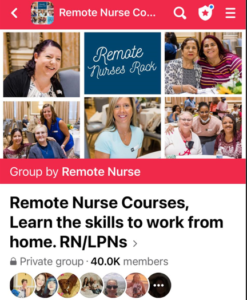Case Managers, Nurse Navigators, and Care Coordinators are hands down the most critical aspects of the healthcare system today.
The healthcare system includes nonclinical employees, medical professionals, insurance companies, hospitals, doctor’s offices, health service organizations, managed care organizations, community programs, nonprofits, and governmental bodies. Together, they collaborate to meet the diverse needs of patients.
In today’s healthcare setup, Case Managers, Nurse Navigators, and Care Coordinators hold vital positions. They greatly influence how patients get care and steer the direction of healthcare practices. Roles like Case Managers, Nurse Navigators, and Care Coordinators are crucial in guiding patient care.
How Case Managers, Nurse Navigators, and Care Coordinators Shape Patient Care in Healthcare Today and Why We Desperately Need Them
Statistics show that roles such as case managers, nurse navigators, and care coordinators expand patient access to screenings and health services for vulnerable patients or population groups with chronic conditions who tend to underuse health services. (National Library of Medicine, 2022)
Their importance lies in their ability to streamline and coordinate various aspects of a patient’s healthcare journey, ensuring continuity, efficiency, and improved outcomes.
Here are key reasons why these roles are crucial:
- Cost Reduction and Preventing Hospital Readmissions: One of the primary reasons for the significance of these roles is their effectiveness in cutting healthcare costs by carefully managing resources and preventing avoidable hospital readmissions, thus optimizing the use of healthcare services.
- Facilitating Seamless Care Transitions: These professionals facilitate smooth transitions between different levels of care, ensuring that patients receive appropriate and timely treatments, reducing gaps in care, and improving overall patient experience.
- Advocating for Comprehensive Patient Needs: Case Managers, Nurse Navigators, and Care Coordinators advocate for patients, ensuring that their diverse needs, including medical, emotional, and social, are addressed holistically throughout their healthcare journey.
- Enhancing Communication and Collaboration: They serve as liaisons between healthcare providers, patients, and families, promoting effective communication and collaboration among different stakeholders involved in patient care, leading to better-coordinated care plans.
- Improving Health Outcomes and Patient Satisfaction: By providing personalized support and guidance, these professionals contribute significantly to improved health outcomes and higher levels of patient satisfaction, ultimately enhancing the quality of care delivery.
These roles stand as essential pillars in modern healthcare, not only ensuring that patients receive adequate care but also contributing to a more efficient, cost-effective, and patient-centered healthcare system.

Rising Demand: Remote Nursing and the Surging Need for Case Managers, Nurse Navigators, and Care Coordinators
The career paths of remote Case Managers, Nurse Navigators, and Care Coordinators are experiencing a surge in demand, aligning seamlessly with the emerging trend of remote nursing.
This shift toward remote healthcare and telemedicine has amplified the need for professionals capable of orchestrating patient care from a distance.
Consequently, these roles have garnered significant attention in the job market, offering substantial job security.
As we advance further into the digital era, the ability to coordinate care, guide patients, and manage healthcare remotely has become indispensable.
This increasing reliance on technology and virtual care has elevated the relevance and desirability of these roles, making them highly sought after in the evolving landscape of healthcare careers.
Distinctive Healthcare Positions: Exploring Remote Case Managers, Nurse Navigators, and Care Coordinators Careers

While acknowledging the availability of numerous job opportunities for these roles in various healthcare settings like hospitals, medical facilities, health clinics, and doctor’s offices, our focus is specifically narrowed down to review remote roles.
We focus solely on remote positions rather than in-person Case Managers, Nurse Navigators, and Care Coordinator roles because these remote nursing roles have a distinctly different dynamic from their in-person counterparts, requiring special remote abilities that are equally, if not more, relevant.
Becoming a remote nurse demands considerable hard work and finely tuned skills. Some might scoff at the idea, dismissing it as a joke. Yet, the reality couldn’t be further from this misconception.
Being a remote nurse isn’t a walk in the park; it requires dedication and training to excel as an extraordinary nurse.
It involves mastering the art of performing clinical skills in a virtual environment, which calls for a unique set of abilities beyond the conventional nursing role.
This is where Marie Peppers’ courses become valuable, but we’ll talk more about that in a bit. For now, let’s explore these unique and exciting remote nursing careers.
Even though remote Case Managers, Nurse Navigators, and Care Coordinators share the goal of ensuring better patient care and outcomes, it’s important to know that their jobs are quite different.
Each role has specific tasks that help patients in unique ways. Understanding these differences is key to appreciating how remote Case Managers, Nurse Navigators, and Care Coordinators contribute differently to making healthcare better.
Let’s explore each role to understand what they do and how they stand apart in helping patients get the care they need.
Remote Case Manager:
Job Description:
Case Managers are responsible for assessing, planning, coordinating, advocating, and evaluating health services for patients. Many remote case managers are employed by healthcare organizations, insurance companies, or telehealth firms, allowing them the flexibility to perform their duties remotely.
Community Standing:
They hold a pivotal role in linking patients to necessary resources, advocating for their needs, and navigating complex healthcare systems on behalf of the patient.
Becoming a Case Manager:
- While having a bachelor’s degree is seen as preferable, it is not a mandatory requirement. Numerous LPNs and associate degree nurses have successfully obtained positions as remote case managers.
- While possessing CCMC certification is beneficial, it’s important to note that numerous LPNs and RNs have successfully secured positions as remote case managers without this certification.
Duties of a Case Manager:
- Assess patient needs and develop care plans.
- Coordinate healthcare services.
- Advocate for patients to ensure they receive appropriate care.
- Evaluate the effectiveness of care plans.
- Collaborate with healthcare providers and other stakeholders for optimal patient outcomes.
Remote Nurse Navigator:
Job Description:
Nurse Navigators are registered nurses (RNs) specializing in guiding patients through the healthcare system. They assist patients in understanding their diagnoses and treatments and connect them with appropriate resources.
Various healthcare entities hire remote nurse navigators, including hospitals, healthcare systems, insurance companies, telemedicine firms, home healthcare agencies, and patient advocacy organizations. These entities often offer remote positions to nurse navigators to assist patients remotely through their healthcare journeys, providing guidance, support, and coordination of care.
Community Standing:
Remote Nurse Navigators often work within hospitals, clinics, or community health organizations, acting as a liaison between patients and healthcare providers.
Becoming a Nurse Navigator:
- While having a bachelor’s degree is seen as preferable, it is not a mandatory requirement. Numerous LPNs and associate degree nurses have successfully obtained positions as remote Nurse Navigators.
- Gain experience in a clinical setting, preferably in a specialty area.
- Pursue additional certifications or training in navigation.
Duties of a Nurse Navigator:
- Educate patients about their medical conditions and treatment options.
- Coordinate appointments and facilitate communication between patients and healthcare providers.
- Provide emotional support and guidance throughout the treatment process.
- Ensure continuity of care and assist with transitions between healthcare settings.
- Provide patient concierge services for new program referrals
- Communicate with patients to provide specific program information
- Provide patient education
- Act as liaison between patient and other healthcare providers such as PCP and specialists
- Problem-solving and escalation of issues as needed
Remote Care Coordinator:
Job Description:
Care Coordinators focus on organizing and overseeing a patient’s care plan, ensuring that various healthcare services are well-coordinated and meeting the patient’s needs.
Community Standing:
Healthcare facilities such as hospitals, clinics, and medical centers often hire remote care coordinators. Additionally, insurance companies, managed care organizations, telehealth firms, home health agencies, and community health organizations frequently seek remote care coordinators. These entities employ care coordinators to remotely manage and coordinate healthcare services for patients, ensuring comprehensive and efficient care delivery.
Becoming a Care Coordinator:
- While having a bachelor’s degree is seen as preferable, it is not a mandatory requirement. Numerous LPNs and associate degree nurses have successfully obtained positions as remote care coordinators.
- Gain experience in healthcare or social services.
- Some employers may require additional certifications or training specific to care coordination.
Duties of a Care Coordinator:
- Assess patient needs and develop care plans.
- Coordinate healthcare services among various providers.
- Assist patients in accessing necessary resources and services.
- Monitor and evaluate the effectiveness of care plans.
- Collaborate with healthcare teams to ensure comprehensive care delivery.
These roles, though distinct, share the common goal of ensuring patients receive optimal care by navigating complex healthcare systems, advocating for their needs, and coordinating services for better health outcomes.
Mastering Remote Nursing: A Unique Approach and Specialized Training
Marie Peppers and her team, comprising of four RNs and three LPNs, guide nurses through their career paths. Collaborating closely with her main instructors—Jessica, Nicole, and Diana—Marie provides support for nurses enrolled in the programs. The courses offered center around addressing the unique challenges encountered by nurses when delivering care remotely. In such settings, conventional senses like touch and smell become impractical, necessitating nurses to sharpen their observational skills for interpreting auditory and visual cues effectively.
Remote nursing requires a different set of skills because nurses can’t be with patients in person. Instead of using touch or smell, they must rely more on what they hear and see. For example, in a regular hospital, a nurse might check a patient’s breathing by listening and feeling. However, in remote nursing, they listen carefully to how the patient breathes and watch for any signs of trouble during video calls. They pay close attention to how patients talk, their facial expressions and body language to understand their feelings.
In virtual nursing, being unable to physically touch patients means nurses must find new ways to help. They might ask more questions to understand what someone is going through. Remote nurses use technology like computers and special devices to keep track of important information like heart rate or temperature. This helps them make clinical decisions about a patient’s care, even from a distance.
While they can’t be there in person, remote nurses still play a crucial role in supporting and guiding patients, showing that caring goes beyond physical presence. Marie Peppers, and her team, provide resume building services as an integral component of the course purchase package
The courses prepares nurses for remote nursing challenges and go further than the basics, making them special and very valuable. These aren’t just ordinary courses.

Unlocking Remote Nursing Careers: Pathway to Sought-After Roles
Breaking into careers like Case Management, Nurse Navigation, or Care Coordination often requires a blend of specialized skills, relevant experience, and a deep understanding of healthcare systems. Nurses aiming to venture into these roles can benefit from targeted education and training that focuses on remote healthcare practices.
One such resource is the online courses offered by Marie Peppers, designed specifically to equip nurses with the expertise needed to excel in remote nursing careers. Marie Peppers’ courses provide comprehensive insights and practical guidance on transitioning into these sought-after roles, emphasizing the unique demands of remote healthcare delivery.
In addition to jobs like case management, nurse navigation, and care coordination, another compelling remote nursing career to consider is Utilization Review Nursing. Remote nursing jobs offer many different options that are interesting and important in healthcare.
Utilization Review Nursing is one of these roles and is worth paying attention to. It involves checking if treatments are needed, reviewing care plans, and making sure resources are used well, all while working from a distance. The world of remote nursing provides many job opportunities.
To explore more about Marie Peppers and her contributions to the nursing community, connect with her on LinkedIn and Facebook.
Facebook.com/Remote Nurse Jobs

References:
National Library of Medicine. (2022, June 5). Defining case management success: a qualitative study of case manager perspectives from a large-scale health and social needs support program. https://www.ncbi.nlm.nih.gov/pmc/articles/PMC9171266/

